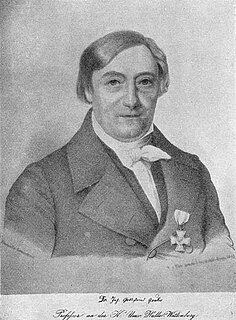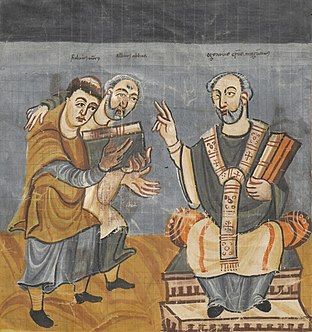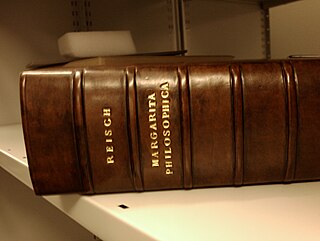 W
WJohann Heinrich Alsted, "the true parent of all the Encyclopædias", was a German-born Transylvanian Saxon Calvinist minister and academic, known for his varied interests: in Ramism and Lullism, pedagogy and encyclopedias, theology and millenarianism. His contemporaries noted that an anagram of Alstedius was sedulitas, meaning "hard work" in Latin.
 W
WFriedrich Arnold Brockhaus was a German encyclopedia publisher and editor, famed for publishing the Conversations-Lexikon, which is now published as the Brockhaus encyclopedia.
 W
WLudwig Julius Eisenberg was an Austrian writer and encyclopedist. He wrote a lexicon of stage artists, among other publications.
 W
WJohann Samuel Ersch was a German bibliographer, generally regarded as the founder of German bibliography.
 W
WJohann Heinrich Samuel Formey was a German churchman, educator, author, and journalist. The son of an immigrant French family, he preached, taught, and wrote in French. A founding member of the Berlin Academy, he wrote thousands of letters, popularized scientific and philosophical ideas, and also contributed to Diderot's Encyclopédie.
 W
WJacob August Franckenstein was the main editor of the first two volumes of Johann Heinrich Zedler's Grosses vollständiges Universal-Lexicon , the most important encyclopedia published in Germany in the 18th century.
 W
WJohann Friedrich Gleditsch was a major book publisher in the late 17th and early 18th centuries.
 W
WJohann Gottfried Gruber was a German critic and literary historian.
 W
WAbraham Gotthelf Kästner was a German mathematician and epigrammatist.
 W
WJohann Georg Krünitz was a German encyclopedist who started the 242-volume Oekonomische Encyklopädie and during his lifetime managed to complete its first 72 volumes.
 W
WCarl Günther Ludovici was a German philosopher, lexicographer and economist. He edited a large part of the Grosses vollständiges Universal-Lexicon, a major German encyclopedia of the 18th century.
 W
WJoseph Meyer was a German industrialist and publisher, most noted for his encyclopedia, Meyers Konversations-Lexikon.
 W
WAugust Friedrich von Pauly was a German educator and classical philologist.
 W
WHeinrich August Pierer was a German lexicographer and publisher known particularly for his Universal-Lexikon der Vergangenheit und Gegenwart, a multi-volume encyclopedic dictionary first published in 1835–6. It went through a number of editions, both during his lifetime and later.
 W
WRabanus Maurus Magnentius, also known as Hrabanus or Rhabanus, was a Frankish Benedictine monk, theologian, poet, encyclopedist and military writer who became archbishop of Mainz in East Francia. He was the author of the encyclopaedia De rerum naturis. He also wrote treatises on education and grammar and commentaries on the Bible. He was one of the most prominent teachers and writers of the Carolingian age, and was called "Praeceptor Germaniae," or "the teacher of Germany." In the most recent edition of the Roman Martyrology, his feast is given as 4 February and he is qualified as a Saint ('sanctus').
 W
WGregor Reisch was a German Carthusian humanist writer. He is best known for his compilation Margarita philosophica.
 W
WWilhelm Siegmund Teuffel, German classical scholar, was born at Ludwigsburg in the Kingdom of Württemberg. In 1849 he was appointed extraordinary, in 1857 ordinary professor in the university of Tübingen, which post he held till his death.
 W
WJohann Heinrich Zedler was a bookseller and publisher. His most important achievement was the creation of a German encyclopedia, the Grosses Universal-Lexicon , the largest and most comprehensive German-language encyclopedia developed in the 18th century.